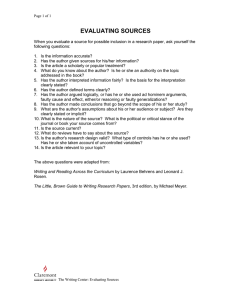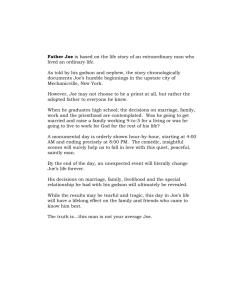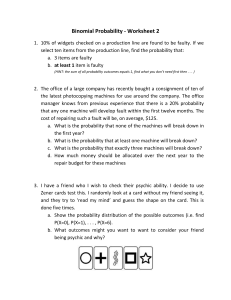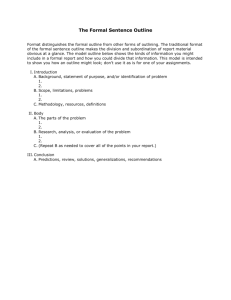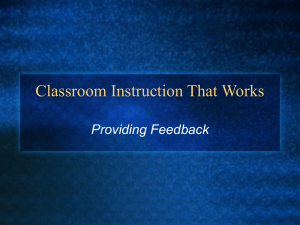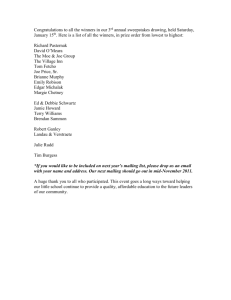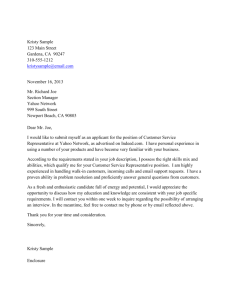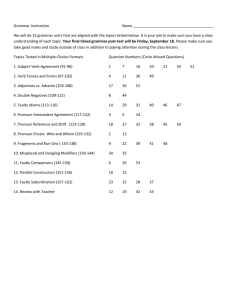Handout 7
advertisement
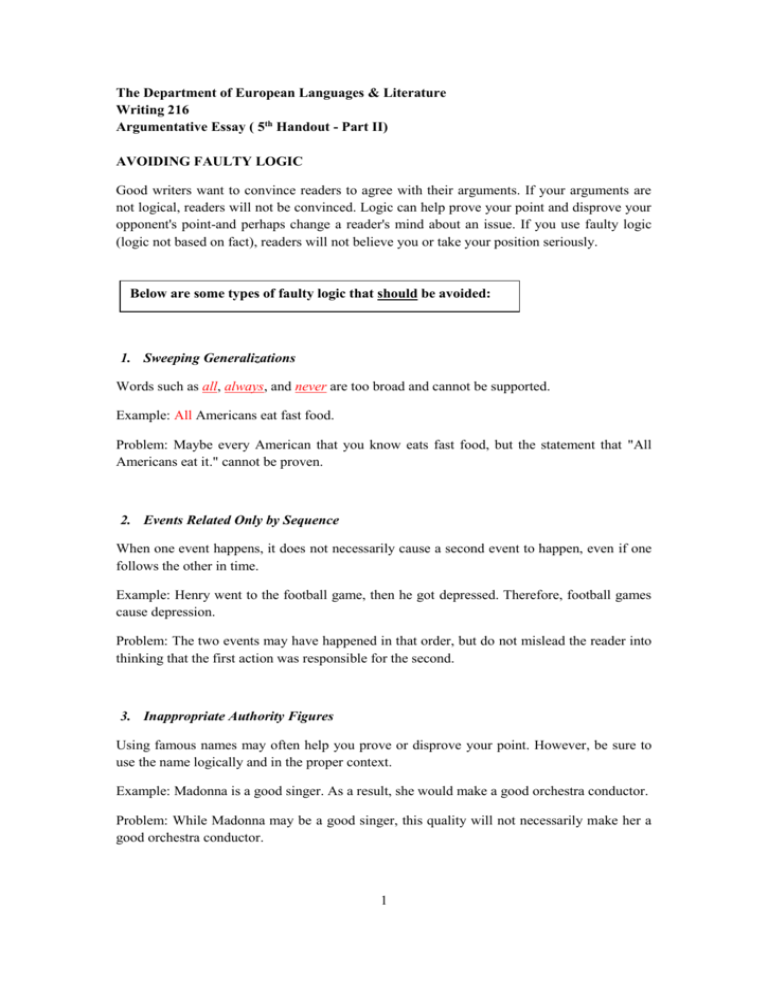
The Department of European Languages & Literature Writing 216 Argumentative Essay ( 5th Handout - Part II) AVOIDING FAULTY LOGIC Good writers want to convince readers to agree with their arguments. If your arguments are not logical, readers will not be convinced. Logic can help prove your point and disprove your opponent's point-and perhaps change a reader's mind about an issue. If you use faulty logic (logic not based on fact), readers will not believe you or take your position seriously. Below are some types of faulty logic that should be avoided: 1. Sweeping Generalizations Words such as all, always, and never are too broad and cannot be supported. Example: All Americans eat fast food. Problem: Maybe every American that you know eats fast food, but the statement that "All Americans eat it." cannot be proven. 2. Events Related Only by Sequence When one event happens, it does not necessarily cause a second event to happen, even if one follows the other in time. Example: Henry went to the football game, then he got depressed. Therefore, football games cause depression. Problem: The two events may have happened in that order, but do not mislead the reader into thinking that the first action was responsible for the second. 3. Inappropriate Authority Figures Using famous names may often help you prove or disprove your point. However, be sure to use the name logically and in the proper context. Example: Madonna is a good singer. As a result, she would make a good orchestra conductor. Problem: While Madonna may be a good singer, this quality will not necessarily make her a good orchestra conductor. 1 4. Hasty Generalizations Hasty generalizations are just what they sound like; making quick judgments based on inadequate information. This kind of logical fallacy is a common error in argumentative writing. Example: Joe did not want to study at a university. Instead, he decided to go to a technical school. He is now making an excellent salary repairing computers. Bill does not want to study at a university. Therefore, he should go to a technical school to become financially successful. Problem: While Joe and Bill have something in common (they do not want to study at a university), this fact alone does not mean that Bill would be successful doing the same thing that Joe did. Other information may be important as well, such as the fact that Joe has lots of experience with computers or that Bill has problems with manual dexterity. Outline Activity Topic: Mandatory physical education in school I. Introduction Thesis Statement: …………………………………………………………………………. ……………………………………………………………………………………………… II. Body A. Paragraph 2 (Your argument) topic sentence: Physical education courses promote children's general health. 1. It helps reduce anxiety in children. 2. ……………………………………………………………………………………. 3. It helps increase bone density. B. Paragraph 3 (Your argument) topic sentence: ……………………………………….. ………………………………………………………………………………………… 1. Children learn about teamwork while playing team sports. 2. Children learn about the benefits of healthy competition. 3. Children learn to respect each other. C. Paragraph 4 (counterargument and refutation) 1. Counterargument: ……………………………………………………………….. …………………………………………………………………………………… 2 2. Refutation: Most parents do not have time or resources to see to it that their children are getting enough exercise. Therefore, it becomes the school's duty to ensure that children are healthy in both mind and body. III. Conclusion …………………………………………………………………………………………….... ………………………………………………………………………………………………. (restate thesis) Physical education has often been downplayed as a minor part of daily school life. If its benefits are taken into account and if schools adopt a twelve year fitness plan, the positive results will foster a new awareness of not only physical fitness but also communications skills. 3
